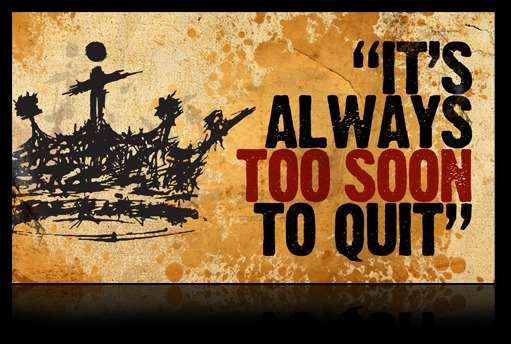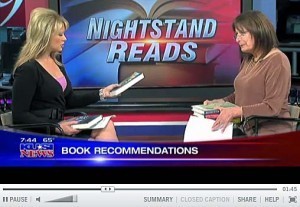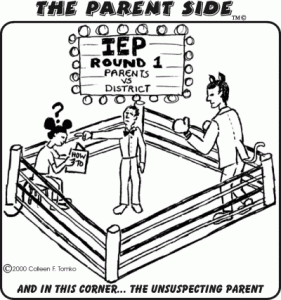Stephen Gallup's Blog, page 11
October 3, 2011
Do Writers Really Need a Back End?
This notion immediately rubbed me the wrong way. I prefer to think of books as literature. But maybe that's naive. Since we all dream of success, I didn’t want to reject the advice out of hand. I’m just a writer, and know very little about the mysteries of getting printed words in front of other people.
Still, in my case, a book is all I have or even want to offer. The books I like to read are also one-offs. On the other hand, occasionally I read something that is so good, or so thought-provoking, that I wish it were possible to have an ongoing dialog with the author. I wish I knew Amy Tan, for example, and Mark Salzman. I wish it were possible to know Alan Watts, but of course he’s no longer with us. In other words, a good book does sometimes inspire readers to want more.
A fulfilling two-way conversation with the author may not be possible, but at least we can go out and buy other books by the same person.
On the other hand, back ends—things that are not even books—are altogether different, I think.
If the book exists to motivate readers to buy another product, then the book is essentially a brochure. Its purpose is not so much to inform (certainly even less to entertain) but to persuade—and not for the purpose of bringing readers to an understanding of truth but to get them to open their checkbooks.
This had been troubling me on an almost subconscious level for a few months, until I remembered a perfect example of a book I’ve read that had a back end.
That book argues against the conventional notions of saving for retirement via things like 401(k) plans, and paying down home mortgages. In bringing it up, I don’t mean to say its content is right or wrong but only to question the dynamic of a book pointing to a solution in which the author stands to make a lot more money. (In this case, readers are encouraged to liquidate their savings and buy a life insurance contract—from the author.)
OK, if an author truly believes what he’s writing, and has not only defined a problem but has figured out a solution, then of course he should present the solution. However, when he stands to benefit if people follow his advice, we ought to question his motives.
By the same token, people aspiring to political office tend to write books (or get ghost writers to do it for them) for the purpose of burnishing their image and rising to power. For them, getting elected is the back end.
No, on second thought, I really don’t like books that have a back end. I’m inclined not to trust them. And I don’t want to play that game. Bucking this trend may not be the path to success, but in the end we writers have to live with ourselves. What do you think?
September 26, 2011
Don't Quit!
Several years ago, a Vietnamese acquaintance invited Song Yi and me (and Joseph) to her apartment. I don't recall what we'd been given to expect, but we were a little surprised to find her living room filled with a dozen or more people sitting cross-legged on the floor and repeatedly chanting an incantation that sounded something like this.
We stayed (the alternative would have been more than rude), and as I spent the next half-hour or more awash in incomprehensible sounds I thought about the intentions of the lady who'd invited us. She'd wanted only to offer what she viewed as a blessing that might change our lives.
Later, a friend explained that this kind of chanting is intended to keep the demons at bay and to bring about happiness. He knew people who had chanted and then experienced good luck and who concluded that there must have been a connection between the two. Maybe more chanting would bring more good luck. Conversely, giving up on the chanting would put everything at risk.
I have no trouble seeing potential for a therapeutic benefit in sounds like this, particularly in terms of reducing agitation and internal chatter. On the other hand, that effect might be achieved simply via music. I don't mean to tread on anyone's beliefs, but expecting more than that amounts to what is called magical thinking. Seems to me.
Magical thinking is what leads us to do something that's imbued with significance in our own mind, and hoping that that improves the odds for something else to come to pass, when there's no objective reason to draw a connection between the two.
If you think chanting is pretty far out, another scenario might be easier to recognize. How about making an extraordinary sacrifice—spending a lot of money or traveling a great distance or enduring hardship—in the pursuit of some cherished goal? If, for example, the goal is finding help for a child who has major problems, sacrifices like that might be part of what is required. However, the sacrifices themselves aren't the thing that addresses the problem. Putting the child in front of the right specialist can help (assuming there is a specialist). The other stuff is incidental. Making extreme sacrifices in order to do the wrong thing may impart a feeling that you have accomplished something, when really you have only hurt yourself.
This kind of thinking is attractive when we feel that we have no control over events. It's natural to want to be in control. But what is the correct response when we aren't?
This is pretty basic stuff, because all of us know what it's like when things don't go the way we want.
I began mulling over this last week, after reading an article (about the Middle East) in which the writer suggested that "there are problems for which solutions might not exist."
Whether solutions exist or not, it's absolutely true that there will always be problems for which we have no obvious answers.
So trouble is inevitable. However—and here I should give credit to a wise man named Bob Botsford—misery is optional. What, after all, is the point of being miserable? What is accomplished by it? Yeah, we've got issues. We all do. And if we put one behind us, another one will rise up to take its place.
I found that to be the case during our family's campaign to help our son Joseph. We waged a long, drawn-out battle so he could crawl on his hands and knees, and when that was a done deal we had another battle to get him to where he could walk. And when he took those first steps, we'd barely gotten started.
I began to preceive that some of the remaining challenges at that point did not seem to have solutions.
So, what do you do in that situation? Quit?
Bob has a lot to say on the subject, but I'm going to take some liberties and distill it down to two points:
It's always too soon to quit.
There's no justification for beating yourself up about not having gotten there yet.
My family's story with Joseph has been doing whatever we could that made sense, and to stop doing things that no longer made sense—while endeavoring not to lose heart. I don't know how it's all going to shake out, but what other option is there? Is the following true, or not?
Weeping may endure for a night, but joy comes in the morning.
Psalm 30:5

September 8, 2011
Interview with Doc Rose on "Rewiring Your Brain"
"…I think there's something about the way human beings are wired that makes us want to turn over control and authority to someone else. I felt that tug at a couple points in the story I tell. Trouble is, other people tend to not know much more than we do. And getting direct access to something higher than other people is problematic. At some point, all of us run up against the fact that we don't have the full picture. We don't know why things still are the way they are. We have to assume that there is a reason at least, that's my assumption. And, if we truly are incapable of fixing things to our liking, seems to me, we have to find a way of being at peace with that. Now, one thing I've observed is that understanding this concept with my head is not the same as being able to do it well. I mean, finding peace is still a work in progress for me. Maybe that's because I still don't fully accept the premise that nothing can be done. Deep down, I still want to think that solutions exist for our problems."
Listen to internet radio with REWIRING YOUR BRAIN on Blog Talk Radio
August 28, 2011
Interview on the Hollis Chapman Show
Listen to internet radio with hollischapmanshow on Blog Talk Radio
"… Go back to the title, What About the Boy? There's a temptation, because he's not communicating with us very well, and we're wrapped up in our own thinking and we're anxious—but I think it's safe to say that he was anxious, too. He was probably scared. He knew, in one way or another, that things weren't right. He was in distress. And we didn't know why. And I think the thing that motivated me to say that [I loved him] was that we had been to the osteopath and she had said that this child is probably—here he is almost two years old—he's never been comfortable once in his life. He has never known what it's like to be comfortable. And I felt so much compassion for the poor kid, and I think that's what prompted me to say it. And maybe that made a connection that he was thinking, Oh, at last they understand, or at last I've got a lifeline here."
August 25, 2011
Interview on Family Focus Radio
 Click here to listen to a nice 30-minute interview with host Line Brunet.
Click here to listen to a nice 30-minute interview with host Line Brunet.
"… This book is intended for the general public, but I hope that medical people will read it as well. Because this is feedback in terms of the patient-doctor interface, and what happens when that goes wrong. I would like it to be the start of a dialog …"
August 16, 2011
Radio Interview with Dave and Bill
August 8, 2011
Recommended Reading

It was a pleasant surprise to learn that What About the Boy? was one of a handful of new books mentioned on TV Saturday. Click here to see the video clip.
A friend asked what I did to achieve such notice, but this one was an unexpected gift from the blue. On the other hand, some work has gone into lining up a series of media interviews. When possible, I will begin posting links to those discussions as they occur. The first is scheduled for 8:35 p.m. Eastern Time on Monday.
July 25, 2011
Book of the Week
Tracey Alley, an Australian blogger, very kindly offered to make What About the Boy? her book of the week. I contributed a unique post to go with the basic information, and hope you will check it out here.
Another guest post went live today on a blog called TheAdventurousBitch. It includes a photo from when Joseph was a little guy just starting to walk. Please check the right-hand column from time to time, as I hope to be able to continue adding additional links like these.
July 16, 2011
They Won't Cooperate, So What Do We Do?
 I've just received an email announcement regarding an attorney's presentation for families who want to convince their school districts to provide services for their disabled kids.
I've just received an email announcement regarding an attorney's presentation for families who want to convince their school districts to provide services for their disabled kids.
The email has its due share of acronyms that may not mean much to people outside the fray (IEP, IDEA, FAPE, OAH), but the message is pretty clear. Despite whatever the law says, and despite whatever ideals educators may have had when they entered the profession, nothing is fair. Essentially, the attorney will tell parents:
How to plead the case for individualized services for their child
To remember that, under the law, they are in theory "equal members of the team"
How to break through the perception of the "crazy parent"
I used to go through those battles. Two or three times, in wrestling with Joseph's school, I hired advocates–people who knew the lingo and knew how to pounce when the teachers and therapists representing the school tipped their hand. Despite a generally pleasant veneer, it was always an adversarial situation. Obviously, things have not improved.
Given the fact that money is tighter now than at any time in memory, how could things have improved? Fighting the system doesn't come naturally to most of us. It certainly did not come naturally to me. Of course, seeking help for our kids leads a lot of people outside their comfort zone. But although we do have to seek that help, I can't avoid wondering whether some avenues are worth the trouble.
Public money for things like individualized ABA programs just isn't there, if it ever was. Families who insist on it are routinely blamed for their "sense of entitlement" – and generally end up with nothing anyway.
Am I wrong? I say that based on everything I've experienced and observed over many years, but somebody please do tell me I'm wrong.
What I like best about Rob Rummel-Hudson's memoir is his depiction of duking it out with his daughter's school in hopes of getting an assistive technology device that would help her communicate. In the end, the family raised money via their website and bought the thing themselves. It's a beautiful victory. Not the end of their struggles, mind you, but the kind of step forward that everyone loves to see.
So, as I've suggested before, I like the idea of finding alternative ways of getting what you want. By this point in my life it comes naturally. But again, alternatives are no sure thing, either. Rob's most recent blog post tells the story of someone who apparently tried to emulate his online appeal for funds but who left the participants with a suspicion of having been duped. Such stories can only hurt future legitimate efforts, in the same way that fraudulent memoirs undermine the perception of those seeking to tell the truth.
I don't know what the families attending that presentation ought to do. But like the school districts we all have finite resources (I'm talking about time, energy, and spirit as well as money). Governments seldom manage what they have with any wisdom, which is a big part of the reason behind what's going on in the news today. In comparison, families can reach the end of their ropes a lot sooner, and with more finality. Choose your battles wisely.
July 8, 2011
Rainbow Redux: Who's Immune to Hope?
So there we were, the wife and I, sitting by the backyard pool at our friends' house and enjoying a little camaraderie with the other guests.
I had been chatting idly about travel destinations with a retired airline pilot when a gentleman I'd never seen before happened to join us. Before long, I found myself deep in discussion with this new guy, the pilot having turned his attention elsewhere. We touched on sports and other safe subjects, but before long things became more exciting.
Craig, my new friend, mentioned that as a child he had been diagnosed with cystic fibrosis and had been given five years to live. I don't think we exchanged ages, but based on appearances I'd have to say that, like me, he has left his youth far behind. Somehow, he survived CF, at a time when almost nobody did.
Seeing my interest, he told me that in his teenage years he'd studied the Chinese art of qi gong. The CF was already in remission by then, but he credits qi gong with the fact that he has kept it at bay all these years. What's more, he and his wife, who is Chinese, have occasionally applied the principles they have studied — or the gift they've been given — to alleviate the sufferings of others. He mentioned a woman afflicted with Lou Gehrig's Disease who regained mobility (at least temporarily) with their help.
At some point in the discussion, I explained my fascination by telling Craig that I have a disabled son. Craig seemed to think he and his wife might be able to help Joseph. In all these maladies, he said, treatment is a matter of locating a "blockage" in the flow of energy and freeing it. Now, that explanation doesn't mean a whole lot to me. My education, such as it is, is Western. I understand the flow of blood through the circulatory system, but I don't know what is meant by the flow of energy.
On the other hand, I don't understand how acupuncture works, either, but I know from personal experience that acupuncture can sometimes help. A couple years ago, it conquered my very painful and debilitating case of frozen shoulder syndrome.
I like to know how a treatment works. But more importantly, when faced with an unacceptable problem, I like to hear that improvement is possible.
Over the years, this mindset has prompted me to do a great many extraordinary things on behalf of Joseph, some of which are described in WATB. A few of the providers I sought out did help him acquire new skills. Most of them succeeded only in transferring money from my bank account to theirs.
But again — some did help! Therefore, others might yet help further.
Qi gong is one of the few things we have never tried.
Other treatments, conceivably, may not have had a fair trial. Since my chance encounter with Craig, I've found an organization that is giving presentations here in Southern California regarding use of stem cells as a treatment for various conditions including autism spectrum disorders. They provide a mother's testimony that this treatment improved her sons' communication skills, eye contact, and openness to learning new things.
Joseph underwent something similar back in the 90s and staged a temporary improvement.
What's offered now may be better, more advanced. I have been assured that it is.
Giving it a shot would mean crossing the border, no doubt because it is not legal in the U.S.
Hmmm. Am I ready to do that again? (It's not cheap.)
All families dealing with chronic issues may not share my fixation on the search for answers. There is, after all, something to be said for acceptance and balance in one's life. I offer the fact that Song Yi and I were enjoying a poolside party as evidence that we too try to lead a normal existence. However, just below the surface, ready to respond at the slightest provocation, lives hope for something more.





